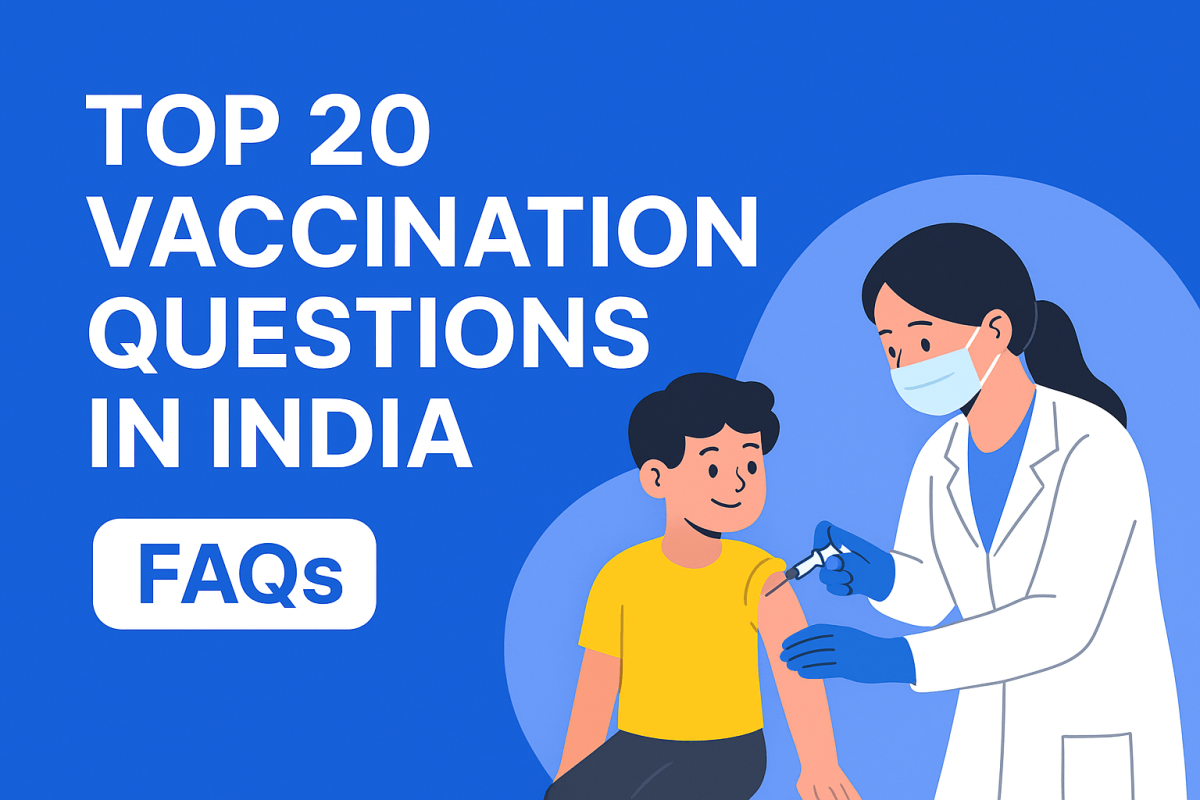1. List of recommended vaccines for children in India?
Children in India are advised to follow the National Immunization Schedule, which includes vaccines like BCG, DPT, Polio, Hepatitis B, Measles, MMR, and more. Given that vaccines protect against tuberculosis, polio, hepatitis, measles, and other common diseases. View more visit vaccine preventable diseases page from the INVC Portal.
2. At what age should a baby need the first dose of the polio vaccine?
The first dose of the oral polio vaccine (OPV) is recommended at birth, followed by subsequent doses at 6, 10, and 14 weeks, according to the Indian immunization schedule.
3. How frequently do adults get a flu shot in India?
Adults should get a flu vaccination once every year, mostly before the monsoon or winter season, to protect against seasonal influenza.
4. Is COVID-19 booster doses compulsory in India?
Yes, as per government announcement COVID-19 booster doses are recommended for adults and high-risk individuals, especially for those who completed their primary vaccination schedule before 6 months.
5. Can pregnant women safely take vaccines?
Pregnant women are advised to take flu and Tdap vaccines during pregnancy. These protect both the mother and baby from influenza and whooping cough. Always consult your doctor for personalized guidance.
6. Where can I get vaccinated in Ahmedabad / Mumbai / Delhi?
Vaccines are available at government immunization centers. You can also book appointments online through official portals or hospital websites like INVC.
7. What vaccines are required before travel from India?
Travelers can take Yellow Fever, Typhoid, Hepatitis A/B, and COVID-19 vaccines, depending on the destination. Check the official travel advisory or consult a Vaccination provider before travel.
8. What are the common side effects of routine vaccines?
Common side effects include mild fever, soreness at the injection site, fatigue, or mild body aches. Serious reactions are rare. Always report unusual reactions to your healthcare provider.
9. Can I take multiple vaccines at the same time?
Yes, many vaccines can be administered during the same visit. Your healthcare provider will advise based on your age, health condition, and vaccine schedule.
10. Is the hepatitis B vaccine necessary for adults?
Yes, Hepatitis B vaccination is recommended for adults who missed it in childhood, healthcare workers, or individuals at higher risk of exposure.
11. How effective are vaccines against new virus variants?
Most vaccines offer strong protection against severe illness, hospitalization, and death. Booster doses and updated vaccines improve protection against new virus variants.
12. Do children need a booster dose for DPT/Polio?
Yes, booster doses are recommended at 15–18 months and again at 4–6 years to maintain immunity against DPT and Polio.
13. Are vaccines safe for people with weakened immunity?
Some vaccines may be live-attenuated and not recommended for immunocompromised individuals. Non-live vaccines are generally safe. Consult your doctor for personalized advice.
14. How early should I get travel vaccines before a trip?
It’s best to get travel vaccines 4–6 weeks before departure to ensure your body develops adequate immunity.
15. Are flu vaccines recommended for elderly people in India?
Yes, people above 60 are at higher risk of complications from influenza. Annual flu vaccination is strongly recommended.
16. What is the difference between live and inactivated vaccines?
-
Live vaccines: Contain a weakened form of the virus (e.g., MMR, Chickenpox).
-
Inactivated vaccines: Contain killed viruses (e.g., Polio IPV, Hepatitis A).
Live vaccines generally provide long-lasting immunity, while inactivated vaccines may require boosters.
17. Can COVID and flu vaccines be taken together?
Yes, studies show it is safe to take flu and COVID vaccines at the same time, though some providers may schedule them separately to monitor side effects.
18. How do I know if I missed any childhood vaccines?
Check your immunization card or hospital records. If unsure, a healthcare provider can review your history and recommend catch-up vaccinations.
19. Are vaccines available at private clinics or only at government centers?
Vaccines are available at both government immunization centers and certified private clinics/hospitals. Private centers often offer appointment-based scheduling and additional convenience.
20. How much do vaccines cost in India, and are they covered by insurance?
-
Costs vary by vaccine and clinic type. Government centers provide free vaccines under the national program.
-
Private clinics charge fees, which may be partially reimbursed by health insurance depending on your policy.
